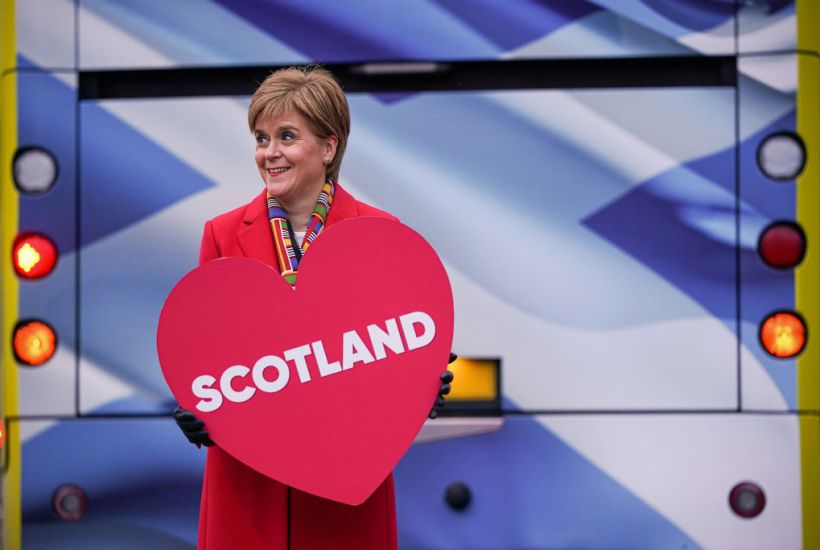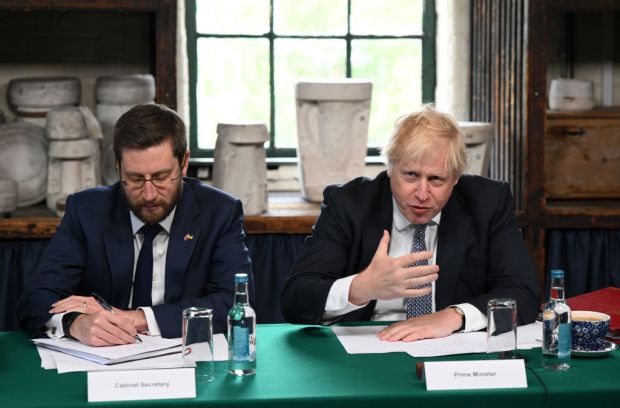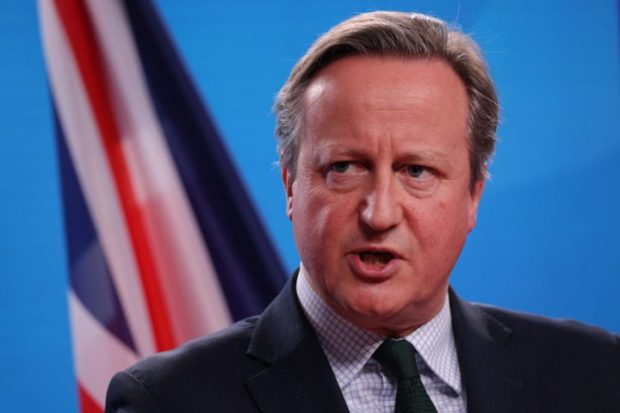There is a certain kind of critic of independence who hears the news that public funding for Scotland is 30 per cent higher than for England and sits back thinking: ‘Job done’. The latest analysis from the Institute for Fiscal Studies does indeed confirm that the Union is a bargain for Scotland. It finds that, while real-terms resource funding for the Scottish Government is two per cent lower per capita than in 2010 (the beginning of the Tories’ austerity experiment), the spending drop is lower north of the border than in England. Scotland gets more than £1.30 per person for public services for every £1 spent in England.
Almost all of that, the IFS tells us, ‘is explained by relatively high levels of funding from the UK government via the Barnett formula’ while net revenues from Holyrood-collected taxes ‘make only a marginal contribution’. Their economists say ‘Scotland’s underlying income tax base has performed relatively poorly compared to the rest of the UK since the devolution of income tax powers, reflecting slightly weaker economic growth’. Thus, although SNP income tax rates are expected to raise £456m, the Scottish Government will gain only £117m in funding thanks to the devolution of income tax.
The especially high level of support Rishi Sunak has given Scotland to fight Covid-19 — almost £10bn so far — means ‘the Scottish Government will almost certainly receive more funding per person to address Covid-19 over these two years than is spent in England’. However, since the SNP administration has chosen to use some of this money to fund non-Covid priorities (free school meals, bus passes, public sector pay rises), Scotland’s budget will be under greater pressure once the extra Covid cash comes to an end. If the Nationalists do the same with future Barnett consequentials (additional spending for Scotland triggered by spending in England), the IFS forecasts Holyrood will have to raise taxes or cut public spending.
So, that’s it, then. Right? Game over for independence. Rule Britannia and all that.
Not quite. As some Scottish nationalists put it, they would happily live in a cave as long as they were free of what they call ‘Westminster rule’, ‘Westminster’ being the preferred euphemism these days. Most people don’t want to live in a cave, but as we saw in the EU referendum economic projections are not the be all and end all. The prospect of losing Barnett cash, and the significant tax rises and/or spending cuts that would follow, did not deter almost 45 per cent of Scots from voting for secession in 2014, nor a majority from telling pollsters for most of 2020 that they would like to go it alone.
It is neither healthy nor good for the Union for the Scots to see themselves as subsidised, and resentful of the fact, and for the English to see themselves as subsidisers, and resentful of that fact. Nor is it sustainable for Scotland to receive, without reference to need, additional spending more urgently required in the poorest parts of England. The longer this continues, the greater the likelihood of regionalism becoming a political force outwith the main parties.
The economic case for the Union is all but inarguable, which is why the nationalists must resort to untruths, half truths, misdirections, fiscal woo-woo and the thinly respectable magical thinking of the Sustainable Growth Commission. But it is — or should be — only one dimension of a much broader case.
To understand why, turn the economic situation on its head. Let’s imagine for a moment that Scotland discovered a new source of clean, infinite energy tomorrow — we’ll call it Ecossium — and governments and multinationals from far and wide opened their treasuries and their R&D budgets to get in on the action. Let’s say the Scottish Government handles this wisely — stick with me — and Scotland becomes Qatar on the Clyde, an energy titan bathing in investment and export cash.
This is, of course, what the SNP said about oil from the 1970s up to and including the 2014 independence referendum, when crude (at $113 or £81 a barrel) was the basis for the Scottish Government’s economic projections and the Yes campaign’s assertion that Scots would be ‘living in one of the world’s wealthiest nations’. Alex Salmond also touted a future in which Scotland became ‘the Saudi Arabia of renewable energy’.
Even if Ecossium met the SNP’s ambitions where oil and renewables have so far failed, it would neither be right nor in Scotland’s interests to secede from the United Kingdom. There are economic reasons for this: even a megabucks Scotland would benefit from remaining in a single market with what is currently its biggest trading partner and would be among the biggest customers for Ecossium.
There are political reasons, too: Scotland is safer, more influential, and enjoys greater access to the world as part of the UK than it would either alone or as the tenth-smallest member of the European Union. There are also ethical considerations: having benefited from the prosperity of other parts of the country, it would be morally-feeble free-riding not to share our newfound plenty with Knowsley, Hodge Hill and Hackney.
There is something more fundamental that all of this: the Union is our story and has been for three centuries now. It is our history, yes, but also where our values are formed, meet with other values and find their expression in law, policy, custom and practice both at home and on the world stage. The Union, the UK, Britishness — the fact it doesn’t have an agreed name is an acute vulnerability in an age of identity politics but it can also be a tremendous strength. It is protean and polysemic, its bounties tangible and ephemeral, an ‘unknown something’ but very definitely a something. To live in Scotland in 2021 is to belong to a country smaller that the population of Johannesburg while also belonging to one of the five permanent members of the UN Security Council.
It frustrates nationalist politicians, activists, and political scientists when opponents of independence refuse to accept that they are ‘British nationalists’. Some political scientists are adamant that support for the UK meets all the criteria of nationalism, but this reflects a misplaced impulse to impose patterns and categories on something they cannot adequately explain. The Union can be synonymous with Britishness but it can just as readily be a platform for multiple identities and a fluid sense of belonging, an opportunity to be Scottish, British, both, neither or countless permutations that fall in between.
The UK is especially curious in that it erects institutions such as the Scottish parliament that undermine its own political coherence and provide its opponents with a proto-state upon which to build their sovereign aspirations. (This last aspect strikes me as unwise but it nonetheless demonstrates how, even as its malcontents yearn for it to be oppressive, the UK can’t help but be open and adaptive to their grievances.)
This is all very abstract and a little theoretical, so it’s hardly surprising that politicians and advocates for the Union stick to pounds and pennies. Pocketbook politics had a good run of it for a while there but identity, status and values are the currency of the moment and Union supporters have to be able to defend, advance and celebrate it on these terms, too. The case for the Union must be Ecossium-proof — just as strong if all the economic arguments were on the other side because they may not matter as much as you think.
Got something to add? Join the discussion and comment below.
Get 10 issues for just $10
Subscribe to The Spectator Australia today for the next 10 magazine issues, plus full online access, for just $10.




















Comments
Don't miss out
Join the conversation with other Spectator Australia readers. Subscribe to leave a comment.
SUBSCRIBEAlready a subscriber? Log in